
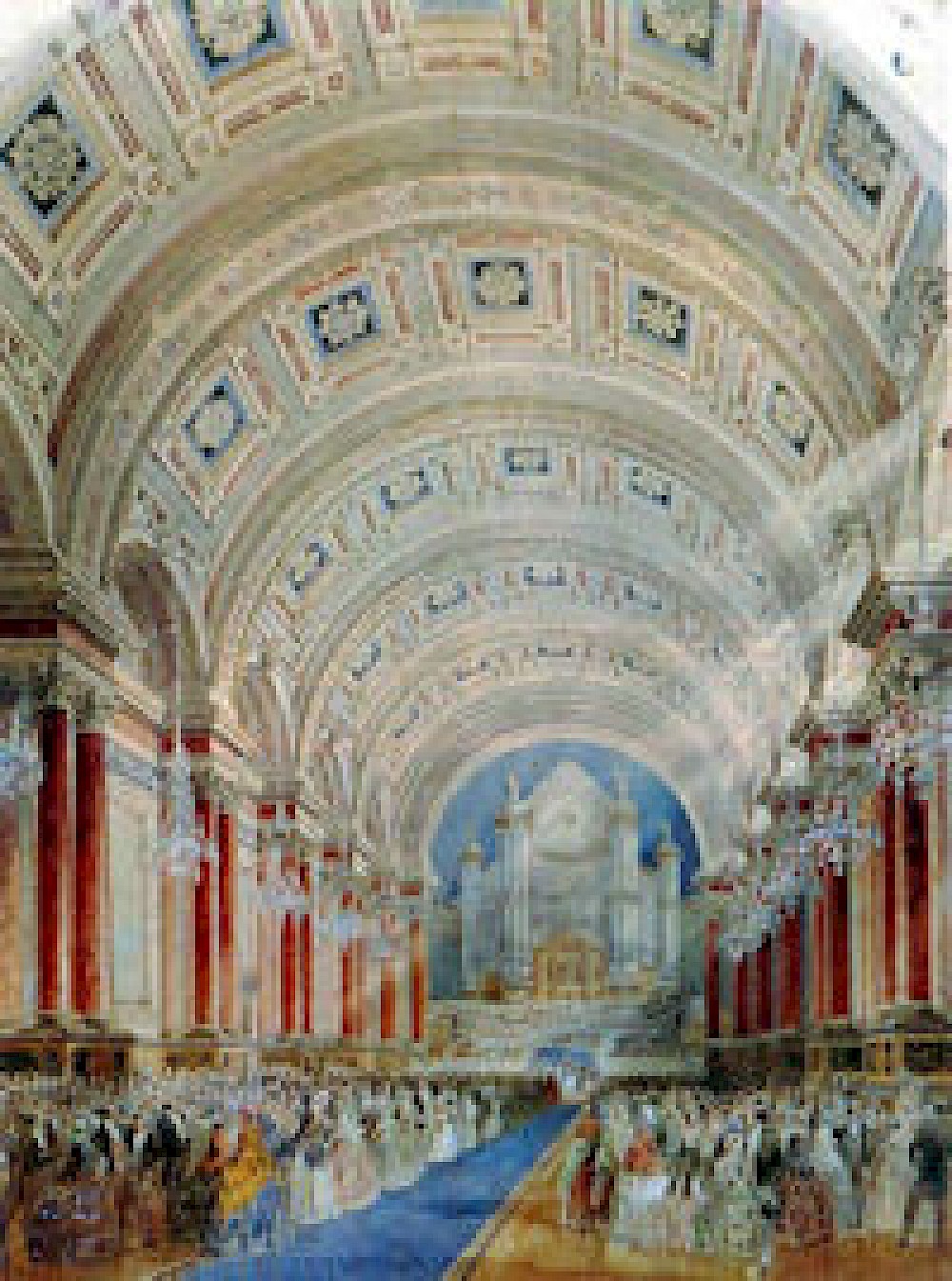
The first great Musical Festival in Leeds formed part of a series of events celebrating the opening of the Town Hall in 1858 by Queen Victoria. A chorus was formed for the occasion. It was the beginning of a tradition that continues to this day: Leeds was to become nationally and internationally known as a centre of musical excellence in the North, its reputation rivalling that of Manchester.
This tradition was firmly rooted in a West Riding musical culture which thrived in all the fast-expanding towns of the Industrial Revolution as well as in many villages and hamlets. There is a record of a Leeds Musical Festival from as far back as 1784. This was a small-scale replica of the famous Handel Commemoration held in London earlier the same year. A three-day Leeds Grand Musical Festival was held for the General Infirmary and “in honour of the Marquess of Wellington’s victories” in 1812.
In Leeds in 1858, the principal moving spirit was Dr William Spark, composer, conductor and organist at St George’s Church. He was co-designer with Henry Smart of the Town Hall’s magnificent organ and had been the main founder of the Leeds Madrigal and Motet Society in 1850. He was also the founder of the Leeds Recreation Society, which organised the People’s Concerts in the Albion Street Music Hall, at the time the town’s main public venue with 800 seats, and encouraged the Leeds Festival Choral Society, specially created for the opening. His influence on the organisation of the first, and subsequent, festivals was of crucial importance. He was one of those who made sure that the Chorus was the backbone.
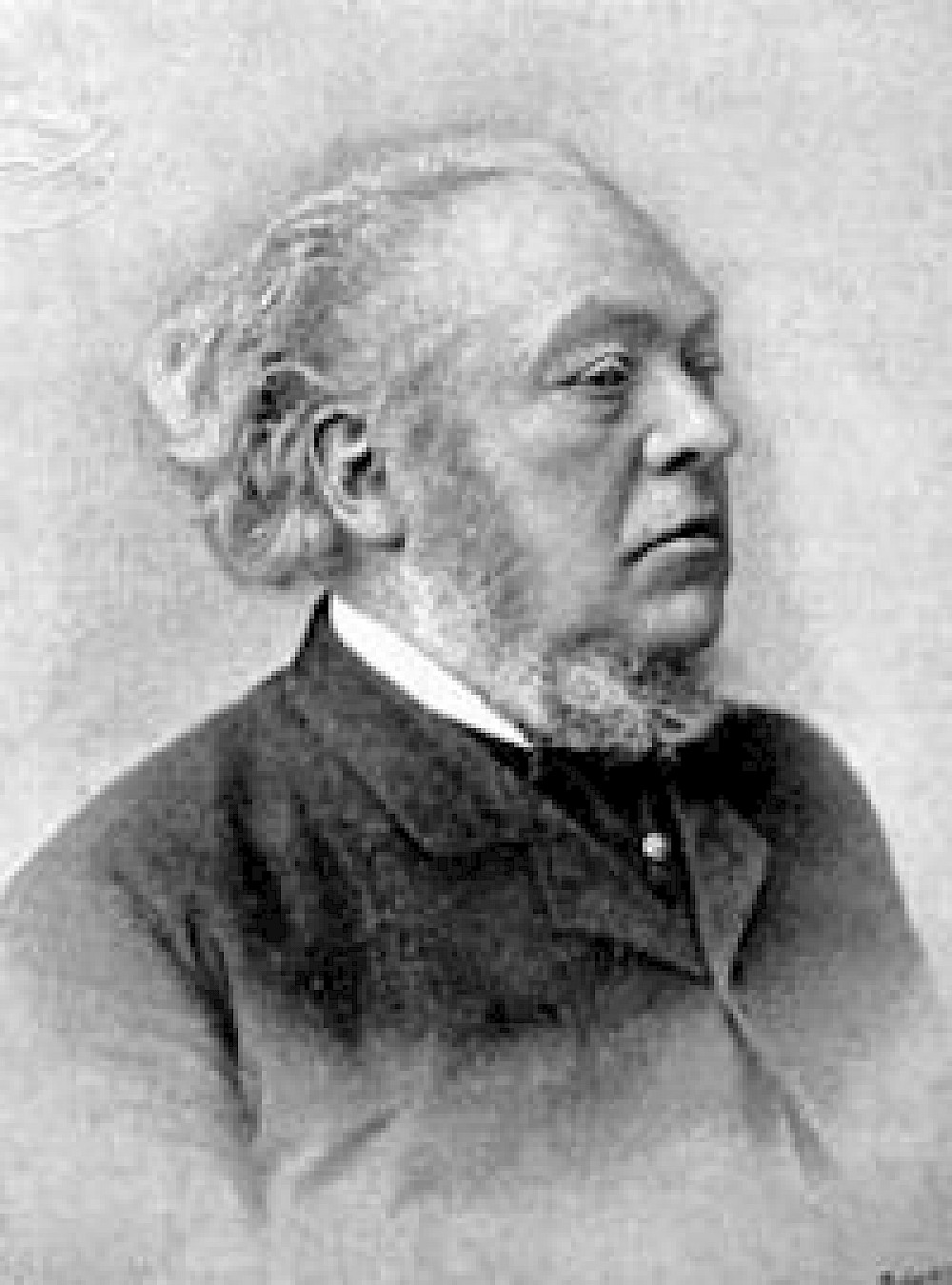
Leeds, a many-chimneyed town of 200,000 which had appalled Charles Dickens when he visited on a lecture tour with its smoke and filth, already famous for its ready-made clothes and its leather boots, was very happy to be in the national gaze. After listening to 26,000 ‘Sunday Scholars’ singing hymns on Woodhouse Moor, the Queen, wearing a mauve silk dress and a white lace bonnet, was welcomed inside with her family, where she knighted the Mayor and listened to the National Anthem, followed by the Hallelujah Chorus. A salute was fired and a red flag was hoisted to announce the opening to the crowds outside. After a reception, the royal party was taken back to Wellington Street to catch the train to Balmoral.
Mendelssohn’s Elijah was due to open the Festival on the Wednesday morning, and it seems a pity that Albert missed it, because he was one of the composer’s greatest admirers. Felix Mendelssohn had admired the Prince as a composer too, and apparently he was not simply being polite.
The Chorus is listed in the programme, along with every member’s town of origin, divided into ‘mesdames’, ‘messrs’ and ‘masters’. The trebles consisted of 56 mesdames and 9 masters, and there were 17 contraltos (mesdames), 42 altos (messrs), 60 tenors (messrs) and 61 basses (messrs). Each section had a principal, and the majority were from Leeds. They came from: Almondbury, Armley, Barnsley, Batley, Bingley, Bradford, Canterbury, Cleckheaton, Dewsbury, Durham, Ely, Exeter, Halifax, Harewood, Harrogate, Holbeck, Holmfirth, Horsforth, Huddersfield, Idle, Kirkburton, Lockwood, Mirfield, Ossett, Peterborough, Ripon, Sheffield, Wakefield and York.
Chorus master was Robert Senior Burton, organist at Leeds Parish Church, where he made sure that the demanding Dr Hook was provided with choral services of the highest standards. He was the conductor at various times for all of the major choral societies, including Barnsley, Bradford and Huddersfield, founded the Yorkshire Choral Union in 1860 and conducted 200 singers the same year at the Crystal Palace in a programme supervised by Prince Albert. He had a reputation, in Yorkshire, for being direct and outspoken, so it would be safe to insert the intensifier ‘very’. A Leeds Intelligencer report on him stresses the positive:
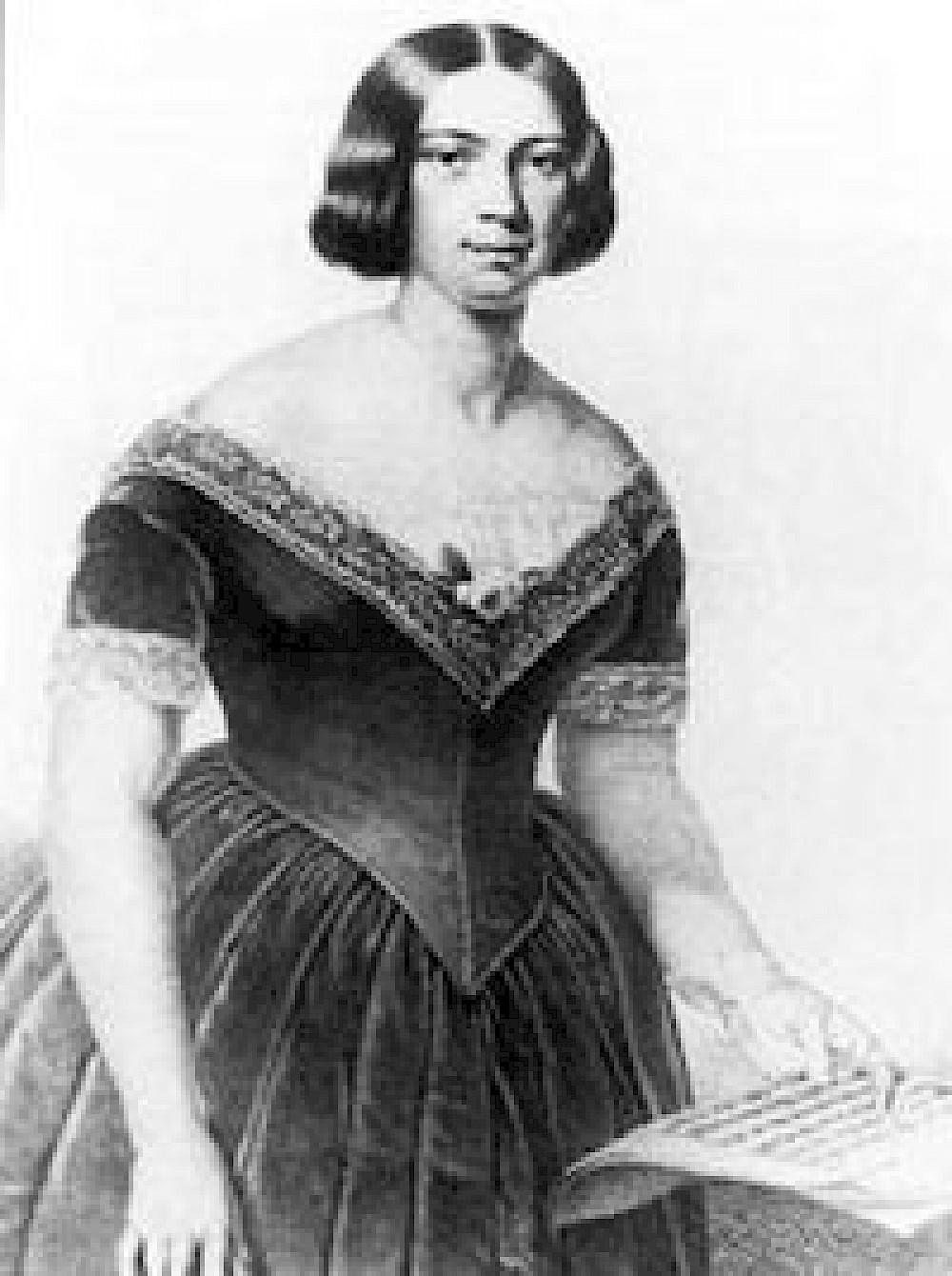
The soloists included the finest, most famous and most expensive of the day. Clara Anastasia Novello, a magnificent high soprano, was one of several gifted children of musician and publisher Vincent Novello. The poet Charles Lamb was entranced by her voice, dedicating a poem to her, To Clara N—–.
Susan Sunderland, local and with little professional training, the ‘Yorkshire Queen of Song’, was the other famous soprano, her devotees eagerly awaiting her brief appearance in the Saturday Messiah.
Charlotte Helen Dolby had delighted Mendelssohn. He composed the contralto part in Elijah with her voice in mind.
John Sims Reeves was the principal tenor of the mid-Victorian era. He had performed at La Scala as Edgardo in Donizetti’s Lucia di Lamermoor and had sung in the first English performance of La Damnation de Faust in 1848, with Hector Berlioz conducting.
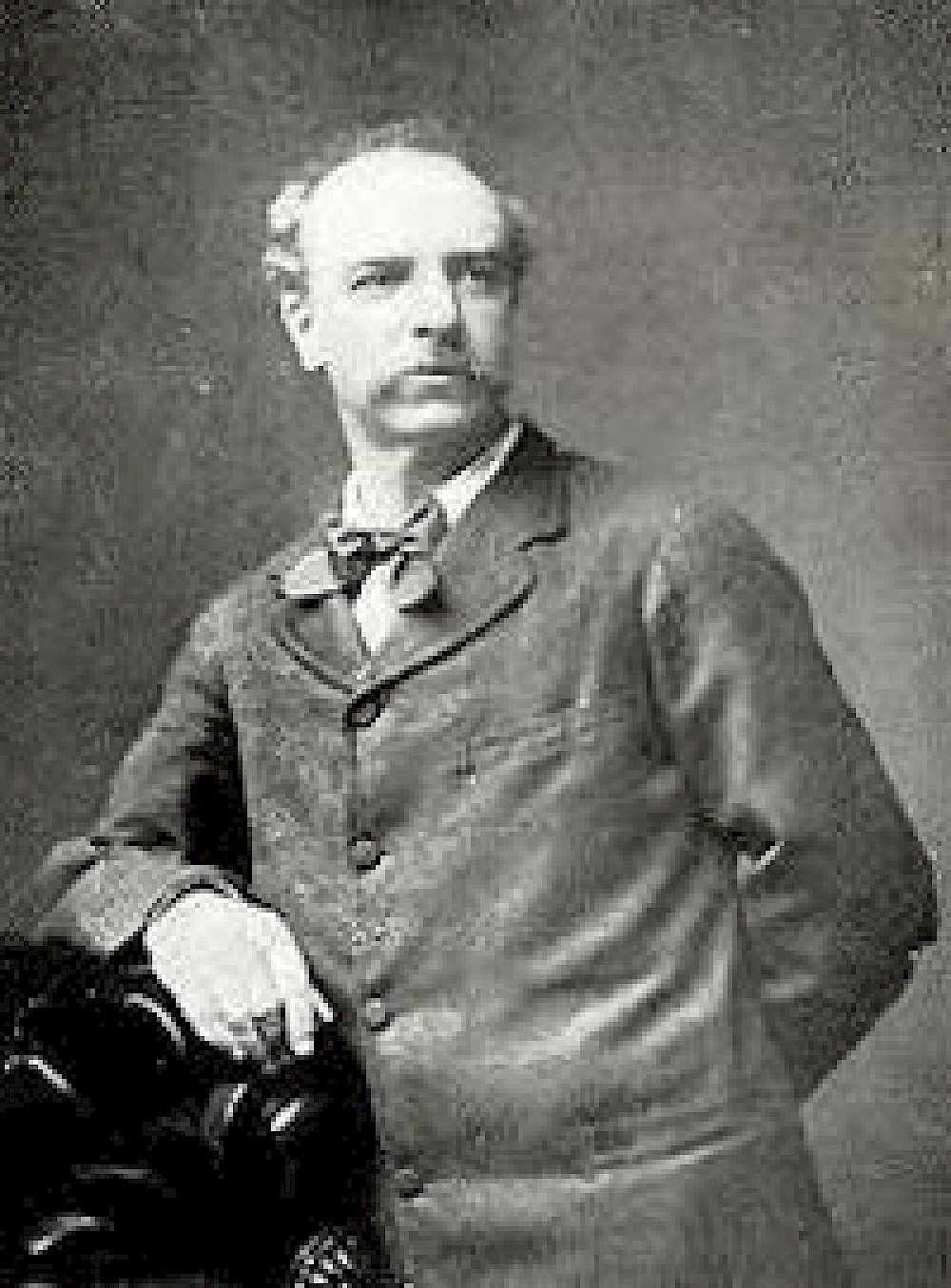
Charles Santley, baritone, became famous as an opera singer, his career lasting until Edwardian times. With Willoughby Weiss, he was a star performer in Rossini’s Stabat Mater on the Thursday morning, less than a year after his first major appearance in London as Adam in Haydn’s Creation.
Willoughby Hunter Weiss was one of the most famous basses of the nineteenth century, performing in many premieres of new works. He had made his fortune in 1854, after setting Longfellow’s poem The Village Blacksmith to music.
Madame Novello was paid £300 for six appearances and the emerging Mr Santley received just £42 for five. Arguments about fees, which could sometimes be astronomical, were constant features throughout the nineteenth century on a Festival Committee dominated by Yorkshire businessmen accustomed to demanding ‘value for money’.
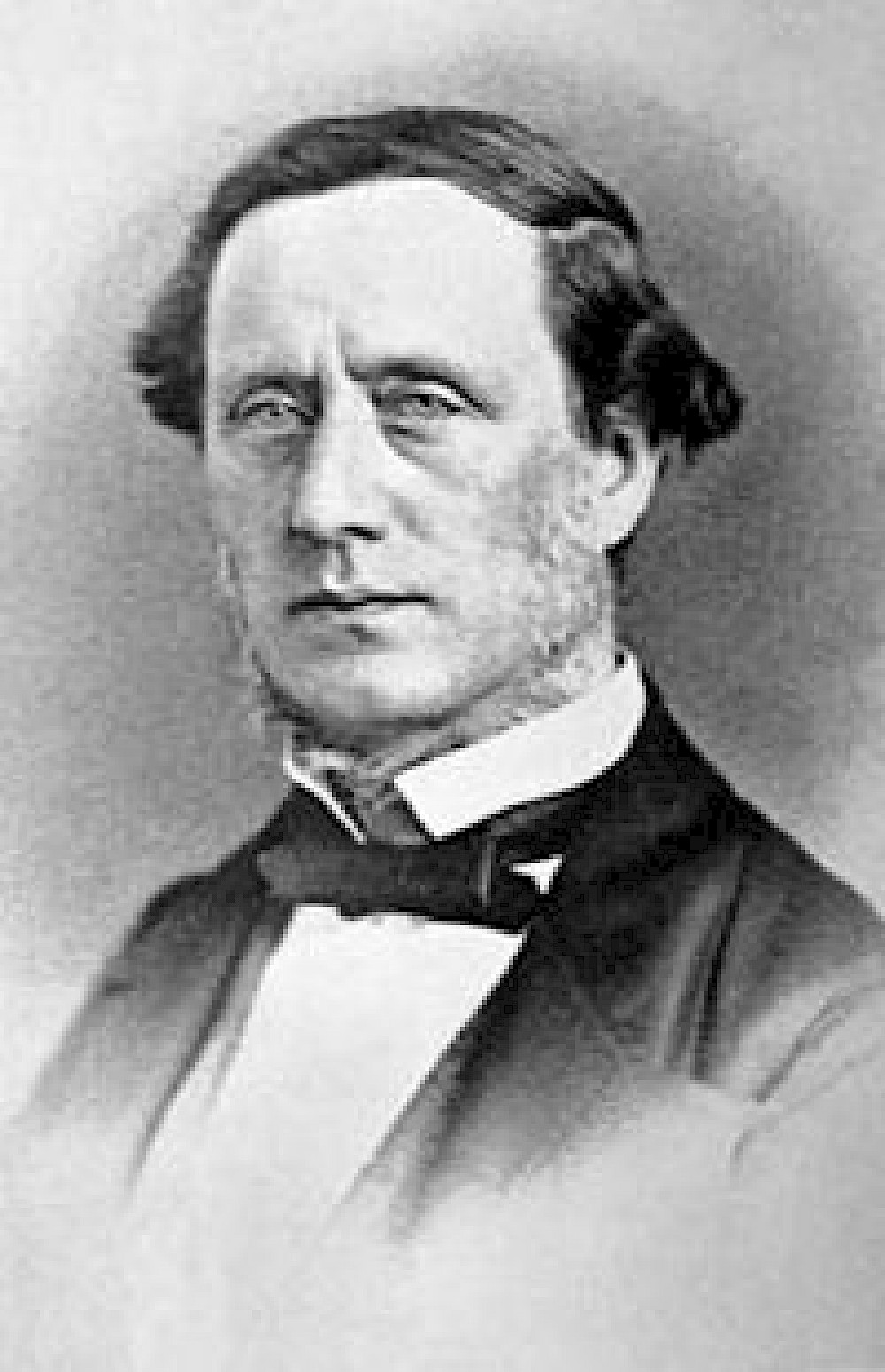
Festival Conductor was William Sterndale Bennett, composer, frequent visitor to Düsseldorf and Leipzig, friend of Mendelssohn (who greatly influenced his work) and Professor of Music at Cambridge. Robert Schumann declared him to be the most musikalisch of all Englishmen, and an angel of a musician – repeating Pope Gregory’s pun on angli and angeli. He conducted the premiere of his cantata The May Queen in the second part of the Wednesday evening concert.
The Festival was made up of a series of four morning and four evening performances, tickets for the final evening (known as the People’s Festival Concert) being offered at a reduced rate. This pattern was followed for future Festivals. The morning concerts were usually sacred choral works, often from oratorio compositions. Evening performances were two-act concerts of solo and ensemble vocal music, with orchestral works at the beginning of each part and occasional instrumental solos. The People’s Festival Concerts did not include orchestral works. The first Festival began on the Wednesday morning with Mendelssohn’s Elijah. In the evening came The May Queen, the first of many performances in the nineteenth century.
Henry Fothergill Chorley, journalist, playwright and music critic for the Athenaeum in London, provided the words. He is remembered today mainly for his obituary of Ivan Turgenev, the Russian novelist, who was offended when he read it because of Chorley’s tart comments on his work, not because he was not actually dead. The May Queen would have been perceived as appropriately patriotic.
Mr Weiss was Robin Hood and the May Queen herself was Madame Clara Novello. Miss Dolby sang the part of The Queen (definite article stressed) and would, I imagine, have cast amorous but chaste glances in the direction of the leader of the orchestra Prosper Sainton. She was to marry him two years later. The Chorus, or some of it, was expected to dance while singing:
Perhaps just the front row of the Mesdames performed a Greek-style dance – were the hoops removed from their crinolines?
Rossini’s Stabat Mater, Beethoven’s Mount of Olives, Spring and Summer from Haydn’s The Seasons and Handel’s Israel in Egypt were performed during the next two days, and Handel’s Messiah was the inevitable climax of the Festival on the Saturday. Mrs (not Madame) Sunderland, wearing, as always, black silk and a coral brooch, sang But thou didst not leave and If God be for us.
The newspapers from one and a half centuries ago can be read at Leeds Central Library, where they are all stored on strips of film, which must be wound into a booth-like machine. The pages can then be read – with some difficulty. I would guess that the average reader in the days of top hats and crinolines would have ended up with eyestrain too: it seems to us in 2008 that the pages were appallingly crowded, with a desperate lack of illustrations and photos, but in 1858 newspapers were thriving, and an increasing number of people could actually read them even in the years before the introduction of compulsory education.
As today, there was enormous press (and popular) interest in royalty and criminals. Queen Victoria’s every move was documented when she stopped off in Leeds to open the Town Hall on her way to Balmoral, and the – alleged – final repentant words of convicted murderers were recorded in their death cells at great length just before they faced the drop, as were details of their last meals in some cases. Advertisements for quack medicines abounded and there were minor headlines like ‘Drunken Irishman arrested’. As today, the press pandered to popular prejudices and the Leeds Intelligencer – a forerunner of the Yorkshire Post – was imbued with a very recognisable Yorkshire chauvinism. So what do those shifty southern Jessies know about choral singing, eh?
Unlike today, when about 250 words is the measly norm, it was normal for concerts to be commented upon at great length. Here’s what I mean:
(Leeds Intelligencer, Saturday September 11 1858)
You can download a transcription of the climactic notice of the performance of Messiah here.